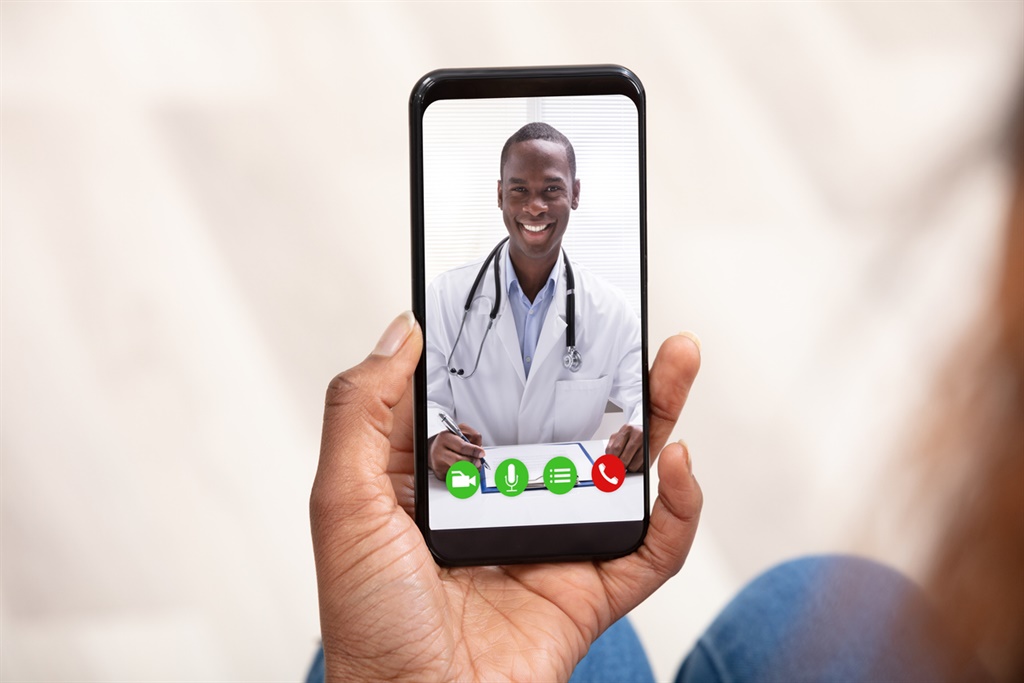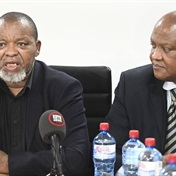
The Covid-19 coronavirus outbreak has necessitated a “business unusual” approach for health professionals, as many are now doing consultations with patients online or by telephone, a change that one industry body hopes will be the way people access some forms of healthcare.
As South Africa battles to contain the spread of new Covid-19 infections, doctors are turning to telemedicine – also known as telehealth – to help limit the foot traffic into consultation rooms in efforts to flatten the curve.
And with social distancing likely to be with us for several months after the easing of the national lockdown restrictions, telemedicine might just be what the doctor ordered to keep people from crowded doctors’ rooms and unnecessary travel, which might expose them to cross-contamination.
The Health Professions Council of SA (HPCSA) had previously banned all forms of telemedicine.
However, since the local outbreak of Covid-19, the SA Medical Association has been raising its members’ concerns with the HPCSA.
It has been pointing out that the members were at high risk of contracting the virus and calling for the council to amend its regulations.
Recently, the HPCSA heeded this call, but only for the duration of the Covid-19 outbreak, and for doctors to help only existing patients via video calls.
Psychologists will, however, be allowed to use video or telephone calls to counsel new patients.
But should this be adopted as the way we access healthcare in the future?
“If you look at international trends, we are behind in South Africa. Our regulator [HPCSA] hasn’t kept up with the different ways of looking after patients. You have to keep up with the times. The fact that our regulator has given an extension of three months, we shouldn’t be celebrating that, we should be asking why it isn’t the norm,” Rajesh Patel, head of benefit and risk at the Board of Healthcare Funders, told City Press.
According to the World Health Organisation (WHO), the term telemedicine was coined in the 1970s and means “healing at a distance”.
It further broadly defines it as: “The delivery of healthcare services, where distance is a critical factor, by all healthcare professionals using information and communication technologies for the diagnosis, treatment and prevention of disease and injuries … ”
In the US, the UK, Finland, Taiwan and in parts of Europe, telehealth has been incorporated into healthcare systems.
“To us, it’s an essential reform in the way that healthcare is accessed, in terms of accessing it efficiently and affordably. The HPCSA’s arm has been twisted this time around because of the pandemic, but why can’t this be a sustainable long-term solution? We’re going through a massive health reform – the National Health Insurance scheme – and there aren’t enough professionals around. So, you need to find efficient solutions for the people to access care, and telehealth happens to be one of them,” Patel said.
Priscilla Sekhonyana, the HPCSA spokesperson, said while the general response to the guidelines amendment allowing for telemedicine had been positive among local practitioners, the council was still conducting an environmental scan to find lasting solutions for South Africa, which has a “wide healthcare delivery resource gap”.
The HPCSA said it did not have detailed statistics on the number of its practitioners who had taken up telehealth as part of their services, but based on the feedback they were receiving, the utilisation rate was “above average”.
“The council has always supported telemedicine practice as much as the national department of health and the WHO. The amendments to the guidelines are to support government efforts to stop the spread of the pandemic and the council is working on a lasting solution to ensure that the policies and regulations find a balance between the technological advances and its mandate of protection of the public and to guide the profession,” Sekhonyana said.
TALK TO US
Will South Africans benefit if telehealth is incorporated into the healthcare system?
SMS us on 35697 using the keywor
 | ||||||||||||||||||||||||||
Vuyo MkizeHealth journalist | City Press | ||||||||||||||||||||||||||
| ||||||||||||||||||||||||||
| Rise above the clutter | Choose your news | City Press in your inbox | ||||||||||||||||||||||||||
| City Press is an agenda-setting South African news brand that publishes across platforms. Its flagship print edition is distributed on a Sunday. |




 Publications
Publications
 Partners
Partners








